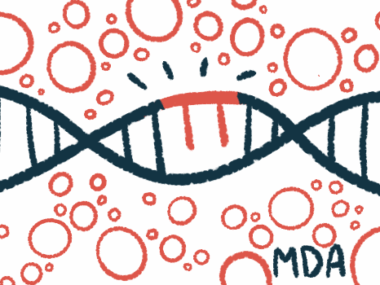Phase 1/2 trial of AB-1003 gene therapy doses 1st LGMD patient
Healthy version of FKRP gene delivered through single infusion
Written by |

The first person with limb-girdle muscular dystrophy type 2I/R9 (LGMD 2I/R9) has been dosed with the gene therapy AB-1003 in a clinical trial, according to an announcement from the therapy’s developer Asklepios BioPharmaceutical (AskBio).
“The first limb-girdle muscular dystrophy 2I/R9 patient dosed in the LION-CS101 clinical trial is another example of AskBio’s success in taking gene therapy candidates, such as AB-1003, from the bench into clinical development,” Jude Samulski, PhD, co-founder and chief scientific officer of AskBio, said in a company press release.
‘Exciting moment for the limb-girdle muscular dystrophy community’
“Hearing that the first patient has been dosed in this study evaluating AB-1003 is an exciting moment for the limb-girdle muscular dystrophy community and individuals living with this debilitating disease,” said Kelly Brazzo, co-founder and CEO of the nonprofit organization CureLGMD2i.
“Given the current lack of disease modifying treatments for LGMD, many in the community know of the potential of gene therapy,” Brazzo added. “The initiation of this trial offers hope that patients with this condition may, in the future, have a significantly improved quality of life.”
LGMD 2I/R9 is caused by mutations in the gene FKRP. AB-1003, also known as LION-101, is designed to deliver a healthy version of this gene to the body’s cells through a single infusion into the bloodstream. The therapy delivers its genetic cargo via an engineered viral vector known as adeno-associated virus or AAV.
“While the inherited nature of limb-girdle muscular dystrophy means those with the FKRP gene mutation can’t produce a normal FKRP protein for physiological muscle function, AB-1003 is designed to introduce the normal FKRP gene into the muscle and express a normal protein, and it has shown promise in restoring normal FKRP protein function in muscle in preclinical studies performed in mouse models of LGMD,” said Nicholas Johnson, MD, of Virginia Commonwealth University School of Medicine.
LION-CS101 trial recruiting at sites in Virginia, Iowa, California
Johnson is principal investigator on the Phase 1/2 clinical trial LION-CS101 (NCT05230459). The study seeks to enroll up to 14 people with LGMD 2I/R9. Participants will be given a single infusion of AB-1003 at one of two doses, or a placebo, then monitored for about a year, with the main goal of assessing the experimental treatment’s safety profile.
The LION-CS101 trial is currently recruiting adults with a confirmed diagnosis of LGMD 2I/R9 at sites in Virginia, Iowa, and California.
“This trial is the first step toward evaluating the safety of AB-1003 and assessing the potential that AB-1003 has to improve the lives of patients with this serious, inherited ultra rare condition,” Johnson said.
AB-1003 was granted orphan drug designation in the European Union earlier this year, and it was awarded fast track designation by the U.S. Food and Drug Administration in 2021.
AskBio is a wholly owned and independently operated subsidiary of Bayer AG. AB-1003 is manufactured by Viralgen, a wholly owned and independently operated subsidiary of AskBio.






